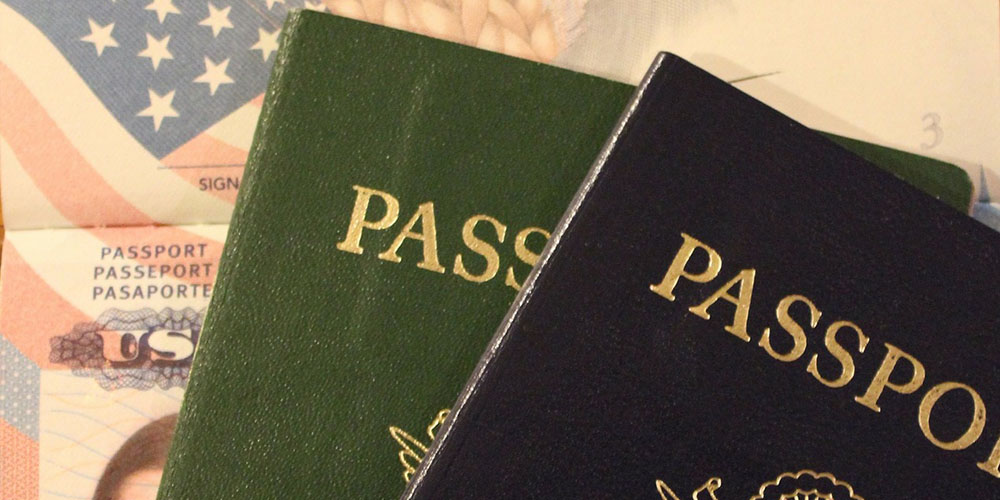Hailed once as the sick man of Asia, the Philippines has come a long way. The growth of the business process outsourcing industry has helped promote inclusive growth, spreading its success to other sectors such as real estate and the retail industry. Its wide pool of young professionals and growing economy make it a viable region for foreign investors.
Net foreign direct investments (FDI) hit a record of $2.2 billion last April, “reflective of the favorable investment climate as the economy continued to post strong growth and show even better growth potentials,” according to Bangko Sentral ng Pilipinas. As of May, FDI for 2016 has already reached $3.9 billion.
If you’re a foreign national who wishes to start a business in the region, here’s a short guide on how to process your work visa in the Philippines.
Different Types of Visa
- Temporary Visitor or Tourist Visa
A foreign national can visit the Philippines for business or leisure using a temporary visitor or tourist visa, which is valid for 59 days.
For those who wish to stay longer than the authorized 59 days, they may apply for an Extension of Stay at the Bureau of Immigration in the Philippines office branches before their allowable days of stay run out. This visa can be useful for first-time entrepreneurs to the country or even returning veteran capitalists who wish to explore their options for opportunities in the Philippines before taking the full plunge.
- Working or Employment Visa
There are three types of work authorization provided for foreign nationals who wish to engage in business in the Philippines.
- Pre-Arranged Employment Visa. This type of visa is provided to a foreign national who will be taking over an executive, managerial, technical, or highly confidential post in a company. This is valid for at least one year, but not exceeding five years.
- Treaty Trader Visa. A foreign national may enter the Philippines as a “treaty trader” under the Section 9(d) of the Philippines Immigration Act provided that he is a citizen of a country with which the Philippines has an established reciprocal agreement for investors’ admission.
To date, foreign nationals from Germany, United States, and Japan are eligible for this type of visa.
- Special non-immigrant visa under Sec. 47(a)(2) of the Philippine Immigration Act. This type of visa is issued to foreign nationals upon approval from the Secretary of Justice with regards to matters of public policy or public interest.
An example would be foreigners who are engaged in industries that conduct power generation, oil exploration, and infrastructure.
The Philippine Retirement Authority has a Special Resident Retiree’s Visa (SRRV) for foreign nationals who wish to retire in the Philippines. The SRRV is a permanent visa, and it comes with various options:
SRRV Smile. A foreign national who is at least 35 years old can apply for an SSRV even if they are not receiving a retirement pension. A requirement of US$20,000 is to be deposited in a Philippine bank approved by the PRA.
For those who wish to bring their spouses and children with them, each additional foreign national requires a US$15,000 deposit.
SRRV Classic. A legally single foreign national who is aged 50 and above who receives a pension of at least US$800 monthly can avail of this visa.
For married foreign nationals, the requirement is at least US$1,000 monthly. The required deposit is only US$10,000, but for those who are bringing their dependents, an additional US$15,000 is required for each.
SRRV Human Touch. This visa can be availed by foreign nationals who wish to retire in the Philippines, but have a pre-existing but not contagious disease and require medical care. The required pension is at least US$1,500 monthly with a bank deposit of US$10,000.
Eligible applicants who wish to bring their dependents do not need to pay an additional US$15,000 for each.
SRRV Courtesy. This visa can be availed by a foreign national who previously held a Philippine citizenship and is at least 35 years old. The required bank deposit is a mere US$1,500.
Former foreign diplomats who served the Philippines and are aged 50 and above can also apply for this type of Philippine retirement visa. However, they are required to pay US$15,000 for each dependent they bring with them.
Government Agencies That Process Philippine Visa
Depending on your country of origin, processing your visa at the Philippine Embassy could take somewhere between two to three working days. However, if the visa application is referred to the Philippines’ Department of Foreign Affairs which is based in Manila, it can take a few months.
Foreign nationals can apply for these types of visa at the consular section at the Philippine embassy in their home country. Below is the list of some of the embassies and tourist offices that can help you process the type of Philippine visa you require.
Embassy of the Republic of the Philippines in the USA
Telephone: (202) 467 9300
Website: http://www.philippineembassy-usa.org
Operating Hours: Monday – Friday 09:00 – 17:00
Embassy of the Republic of the Philippines in the UK
Telephone: (020) 7451 1780
Website: http://philembassy-uk.org
Operating Hours:
Monday – Friday 09:00 – 13:00 and 14:00 – 17:00 for Visa Applications
Monday – Friday 16:00 – 17:00 for Visa Collections
British Embassy in Manila
Telephone: (02) 858 2200
Website: http://www.gov.uk/government/world/philippines
Operating Hours: Monday – Friday 08:00 – 16:45
Securing a Philippine visa is easy as long as you’ve obtained the proper documentation. Depending on where you process your visa application, it can take a short while. In the meantime, it can give you plenty of time to plan out your investing roadmap in the Philippines.
EnterPH is more than willing to assist you in determining your best option depending on the type of stay you wish to have in the Philippines. Inquire here for a free consult as to fees, timeline and general requirements.

Rocky Chan is a lawyer and business consultant who excels in corporate formation, immigration procedures, and client relations. In the last 7 years, he honed his craft in the field of foreign investment consultancy.

